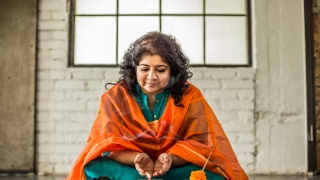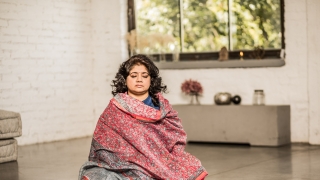
5 Days of Delight - Deepawali
Deepawali marks the establishment of dharma that allows the awakening of our highest potential. The festival lasts for 5 days where each day has a special symbolic meaning and rituals associated with it.

![]() 4 minutes
4 minutes
Asana is rooted in "asa" which means to take a seat, to become, to establish, to dissolve, to be grounded, to be firm, to be easy and to be comfortable.
Patanjali Yoga Sutra states, Asana is that which has two basic qualities: sthira (still, stable, rooted) and sukha (effortless, easy, comfortable). Once such a seat is established with absolute effortlessness, one must focus the mind to the infinite. This helps transcend the dualities that are experienced.
It is a seat for the mind in the body.
It is not a pose, performance or physical position. Let us understand its scope. The entire foundation of the state of Yoga is based on allowing the mind to take a seat.
11 steps to do the abhyasa (practice) of an asana so that one may become that which one is practicing.
Asana means to become that you which you are going to practice. It is not make believe, it is not mimicking, it is not performance, rigidity, adamancy, challenge or an accomplishment.
It is simply any body position in which mind takes a seat, expands and then is redirected towards a specific point which then triggers the extraction of the samskaras, vikrutis, vikalpas, negative thoughts and emotions held there. This helps in peeling the layer of blockages and enter into anandamaya kosha.
STAY IN TOUCH
Start your FREE subscription to Indu Arora's newsletter to get more on Yoga and Ayurveda here
Say hello on Instagram
Subscribe to my Youtube Channel.

Deepawali marks the establishment of dharma that allows the awakening of our highest potential. The festival lasts for 5 days where each day has a special symbolic meaning and rituals associated with it.

We delve into the concept of namaste as a mudra and explore mudras that extend beyond the hands.
New to the idea of mudras? How they can explore it further?

Most of the people who come for one to one Yoga classes are looking for benefits to the physical and mental body and may not have real craving/appetite to understand the philosophy yet. Why does this matter? When they practice mula-bandha without knowing what it really is, it creates an illusion of doing an advanced practice.